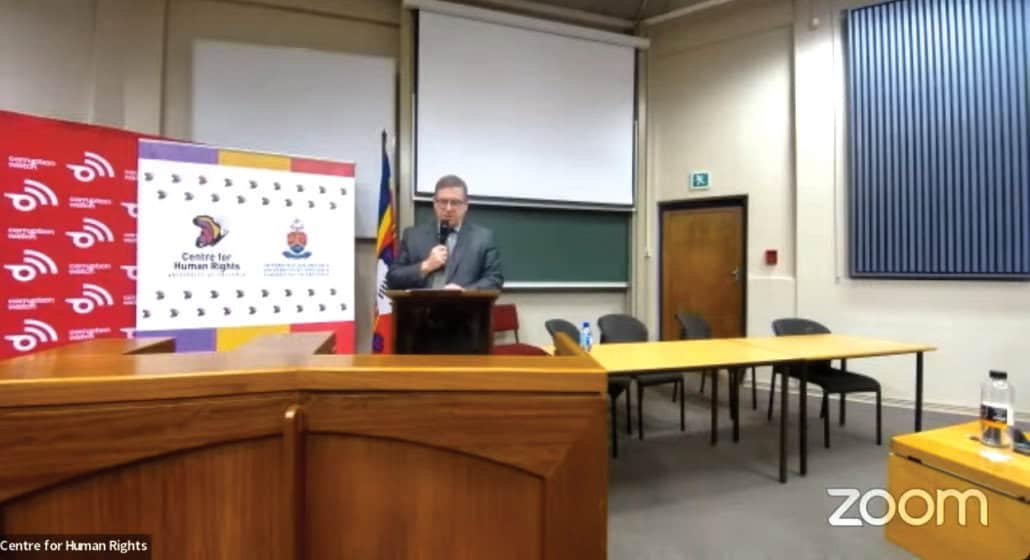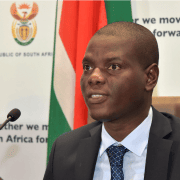|
Getting your Trinity Audio player ready...
|
Government is currently developing a draft bill in response to recommendations made by the public to the Department of Justice and Constitutional Development’s discussion paper on improving whistle-blower protection, which was released in June last year. This was confirmed by Deputy Justice Minister John Jeffery on Wednesday 12 June, at the second Thulani Maseko memorial lecture in Pretoria. The theme of this year’s event was Lack of accountability and impunity in the persecution of human rights defenders.
Jeffery said although there was progress in addressing some aspects of whistle-blower protection in South Africa, a lot more still needs to be done. “Ultimately, we need to creative a supportive environment for whistle-blowers, encourage accountability and transparency, and inspire more people to speak up against fraud, corruption and human rights abuses in our society.”

The recommendation to review and expand on the current legislation on whistle-blower protection came from the final report of the state capture commission chaired by Chief Justice Raymond Zondo between 2018 and 2022. Several of the witnesses who appeared before him during the hearings raised concerns over the lack of support that whistle-blowers receive in both reporting corruption and in the aftermath of their reporting.
Zondo highlighted in his report that much of the evidence traversed during the inquiry would not have been possible had it not been for the bravery of whistle-blowers who sought to stop state capture in its tracks. Furthermore, in his recommendations on the subject, he called on government to consider establishing an independent anti-corruption agency that would have a strong component of whistle-blower protection and support.
Best possible scenario
Jeffery acknowledged that his department had had to put a lot of work into researching the best possible scenario for the improvement of whistle-blower protection. The discussion paper focused on how to best move forward in amending both the Protected Disclosures Act – which is currently the only mechanism outside of a criminal complaint that an individual can use to report corruption to government agencies – and the Witness Protection Act. Both pieces of legislation have been criticised over time for their gaps in addressing enforcement of protection of the individuals who blow the whistle.
Another speaker at the event, Dr Sipho Malunga, also a human rights lawyer and activist, said we need to take inspiration from those who fought for human rights and sacrificed their lives in generations past.
He answered a question from the floor on whether or not it is worth it to keep fighting for human rights in conditions where there was little support, and human rights defenders were being persecuted. “To do nothing is to literally give away your rights. You may not see freedom yourself, but your fight for freedom will ensure that others will see freedom,” said Malunga.
The lecture, organised in partnership between the University of Pretoria’s Centre for Human Rights and Corruption Watch, was both a celebration of the legacy of Maseko, a human rights lawyer and alumnus of the centre, who was killed in January 2023 in eSwatini, and an opportunity to highlight the plight of whistle-blowers and human rights defenders.
Maseko was arrested and detained between 2014 and 2015 for publicly criticising the Mswati regime. He would later launch a court challenge in 2018 against Mswati for his government’s human rights stance, and continued with his activism until his assassination five years later. No-one has ever been arrested for Maseko’s murder.







